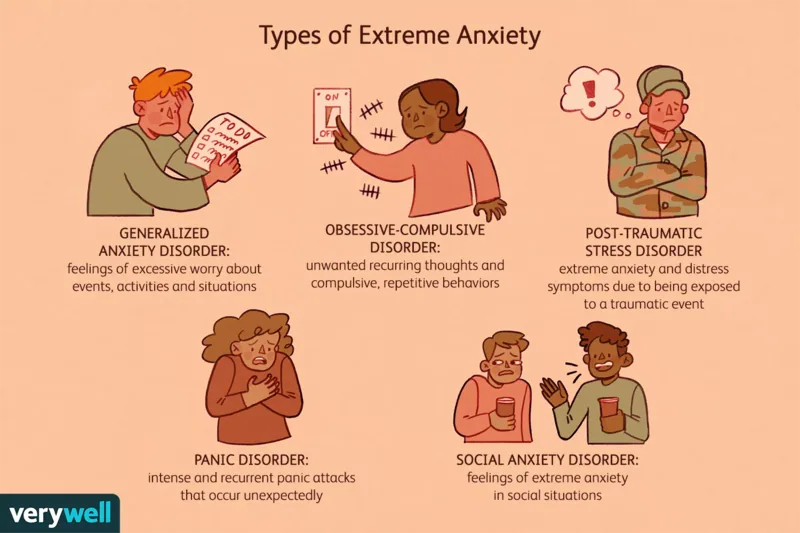Navigating the intricate web of family relationships can be one of life's most challenging journeys. For some, these connections become so strained, toxic, or abusive that the thought of complete separation, or "going no contact," feels like the only viable path to peace. If you're pondering this profound decision, it's crucial to understand the multifaceted implications involved. According to therapists, choosing to distance oneself from family is rarely a simple act; it’s often a deeply considered, painful necessity aimed at protecting one's mental and emotional well-being. This guide, informed by expert insights, will delve into what you need to know before making such a life-altering choice, offering a comprehensive look at the causes, effects, societal pressures, and practical coping strategies for family estrangement.
1. Understanding Family Estrangement: Why People Cut Ties
What leads someone to cut ties with a family member? People often cut ties with family due to toxic relationships, various forms of abuse (mental, physical, emotional, financial), substance addiction, mental illness, political polarization, differing religious or cultural beliefs, or significant shifts in family dynamics like divorce or controlling partners. This decision, according to therapists, is rarely taken lightly and often aims to preserve one's mental and emotional health.
The spectrum of family contact ranges from high engagement to low contact, and ultimately, to no contact. The decision to decrease or eliminate contact is deeply personal and driven by a multitude of complex factors. For many, it's not a choice made on a whim but a last resort after years of trying to navigate or mend dysfunctional family relationships (Harvard, 2024). Trauma therapist Alice Zic, MPH, LCSW, emphasizes that reaching the point of estrangement often feels less like a choice and more like a necessary act of self-preservation. This sentiment highlights the profound emotional toll that precedes such a decision, indicating that individuals often feel compelled to act to safeguard their own well-being.
One common catalyst for estrangement stems from persistent patterns of abuse—be it mental, physical, emotional, or financial. For instance, an adult child might decide to cut ties with a parent who has historically exploited their financial resources, leaving them in debt, or a sibling might distance themselves from a sibling whose emotional manipulation has created a constant state of anxiety and self-doubt. Another significant factor is the presence of substance addiction or untreated mental illness within the family, where the affected individual's behavior consistently harms others, and attempts at intervention have failed. These situations create an environment where healthy interaction becomes impossible, forcing individuals to protect themselves from continuous harm.
Beyond overt abuse, ideological clashes can also drive a wedge between family members. The current climate of political polarization, for example, has seen families fractured over fundamental differences in beliefs, where dialogue becomes impossible, and respect erodes. Similarly, vastly different religious or cultural beliefs can lead to deep rifts, especially when one party attempts to impose their views on another, or when life choices (such as marriage outside a specific faith) are met with rejection and condemnation. These situations, while not involving physical harm, can inflict profound emotional pain and a sense of alienation, making the maintenance of family ties untenable.
Joshua Coleman, PhD, a psychologist specializing in family estrangement, points out that miscommunication often plays a significant role. Parents, he notes, may acknowledge mistakes but frequently struggle to understand why those mistakes would lead to estrangement. Sometimes, adult children, perhaps due to conflict avoidance, haven't clearly articulated their grievances, leaving parents "operating in the dark." In other cases, the child has communicated their pain, but the parent has been unwilling or unable to accept it. This gap in understanding underscores the complexity, where both parties might feel misunderstood or wronged, further cementing the divide. The process is rarely linear, often marked by shifting levels of contact and cycles of hope and disappointment, making the decision to fully sever ties a deeply considered, often agonizing, journey.
2. The Psychological Impact of Family Estrangement
What are the psychological effects of family estrangement? Estrangement can evoke a complex mix of emotions. While some experience initial anger, sadness, and stress, which may lessen over time, others report feelings of liberation, stress relief, and a clearer sense of purpose, according to therapists. It's a nuanced experience, with individuals often grappling with both grief and newfound freedom.
The decision to become estranged from family carries a significant psychological weight, leading to a diverse range of mental health outcomes. For many, the initial phase of estrangement is marked by intense feelings of sadness, grief, and a profound sense of loss. This grief is not just for "what was," but often, as clinical psychologist Patricia Dixon, PsyD, highlights, "the grief of what you thought the relationship would be." This sorrow can be enduring, with studies indicating that adult children estranged from their family often view their separation as a necessary but painful loss they will grieve throughout their lifespan (Agllias, 2018). The emotional landscape can be tumultuous, encompassing anger, resentment, and persistent stress, particularly in the early stages of separation (Melvin & Hickey, 2022).
However, the psychological impact is not uniformly negative. For a considerable number of individuals, estrangement brings a profound sense of liberation and relief. Breaking free from toxic family dynamics can alleviate chronic stress, reduce anxiety, and foster an environment where personal growth and self-discovery can flourish. A 2021 study, for example, reported that those initiating the separation often experience a sense of newfound freedom, a decrease in psychological distress, and a stronger realization of their own purpose and identity (Linden & Sillence, 2021). This can manifest as improved self-esteem, healthier boundaries in other relationships, and a greater capacity for joy and contentment. For someone who has spent years in a state of emotional turmoil due to family interactions, the peace that follows estrangement can be transformative.
The reality of estrangement, according to therapists, is that it's rarely a static state. Many estrangements are characterized by on-again, off-again cycles, creating further emotional complexity (Scharp, 2023). This intermittent contact can prolong the healing process, as individuals may repeatedly face the pain of re-engagement with unresolved issues. Moreover, the rise of social media in 2025 has added another layer to this complexity. While it provides a means for connection, it can also glamorize estrangement, making it seem easier than it is, and allow for "stalking" of estranged family members, blurring the lines of true no-contact. This digital proximity can hinder emotional detachment and prolong the grieving process, making it harder to fully move on.
Given these varied and often conflicting emotional experiences, experts like Dr. Dixon recommend exploring alternatives before rushing into full estrangement. Setting clear boundaries and expectations within family relationships can often mitigate the need for complete separation, reducing the potential for mental and psychological stress that accompanies the grief of lost connections. This proactive approach, guided by mental health professionals, can help individuals navigate challenging family dynamics in a way that prioritizes their well-being without immediately resorting to severing ties.
3. Societal and Cultural Pressures on Family Ties
Societal narratives surrounding family estrangement often place immense pressure on individuals to maintain family relationships, regardless of the cost to their well-being. This pervasive idealization of reunification or reconciliation, according to therapists, frequently overshadows the reality that estrangement can be a necessary, even healing, experience. These pressures can make the decision to distance oneself from family incredibly challenging, compounded by feelings of guilt, shame, and isolation.
The prevailing societal expectation is that family ties are sacred and unbreakable. This narrative, deeply ingrained in many cultures, can actively harm those considering or already navigating estrangement. As Dr. Patricia Dixon explains, distancing oneself from someone who once held a foundational role in your life naturally brings up feelings of grief – not just for what was, but for the idealized relationship that never materialized. This grief is often intensified by the lack of societal validation for estrangement, leaving individuals feeling misunderstood and unsupported. The pressure to maintain connections can lead individuals to endure harmful situations, fearing the judgment and ostracism that might accompany breaking away. In 2025, while discussions around mental health are more open, the stigma around family estrangement still largely persists, particularly in traditional communities.
Cultural background plays a significant role in how these pressures are experienced. Dr. Dixon highlights that for people of color, there's often an added cultural expectation to remain bonded with family members due to a history of shared struggles and a collective "kinship for survival" against discrimination. In these contexts, stepping away from a family member can be perceived as a betrayal of this collective identity, leading to intense feelings of pressure and shame. The weight of cultural duty can make estrangement exponentially more difficult, as it may mean not only losing individual family members but also feeling disconnected from one's cultural heritage and community.
Alice Zic, MPH, LCSW, further elaborates on this, noting that these pressures are particularly pronounced in collectivist cultures. In such societies, the well-being of the group often takes precedence over individual desires, and the concept of individual autonomy in family matters is less emphasized. Severing family ties in a collectivist setting can lead to severe social repercussions, including being ostracized by the wider community, losing access to crucial support networks, and facing profound cultural disapproval. This can make the already difficult decision of estrangement almost unbearable, as individuals must weigh their personal mental health against the potential loss of their entire social fabric.
The constant exposure to idealized family images in media and popular culture further reinforces these pressures. From holiday advertisements depicting joyous family gatherings to social media posts showcasing seemingly perfect family vacations, these portrayals can make individuals experiencing estrangement feel even more isolated and abnormal. This disconnect between societal ideals and personal reality can exacerbate feelings of loneliness and guilt, making it harder for individuals to accept their decision and move forward with healing. Understanding these pervasive societal and cultural forces is crucial for anyone considering estrangement, as it helps to contextualize the emotional and social challenges they may face.
4. Effective Coping Strategies for Family Estrangement
Coping with family estrangement is a deeply personal journey, but there are proven strategies, according to therapists, that can help mitigate the associated grief and stress. Embracing self-care, building a strong "chosen family," and seeking professional support are vital steps toward healing and finding peace. These actionable steps empower individuals to navigate the complexities of their new family landscape.
One of the most crucial coping mechanisms involves engaging in consistent physical and mental self-care practices. Alice Zic, MPH, LCSW, strongly recommends integrating activities like therapy, meditation, or movement-based practices such as yoga or walking into one's routine. These practices serve to nourish the mind and body, providing grounding stability amidst emotional turmoil. Mindfulness exercises, in particular, can help individuals stay present and manage overwhelming feelings, preventing them from spiraling into rumination about past family dynamics. For example, setting aside 15 minutes each day for deep breathing or a guided meditation can significantly reduce stress and promote emotional regulation (Harvard, 2024). Prioritizing personal well-being is not selfish; it is a fundamental act of self-preservation when navigating the emotional aftermath of family estrangement.
Building a robust "chosen family" is another cornerstone of effective coping. Your chosen family comprises individuals in your life with whom you share a deep, familial bond, irrespective of biological relation. These are the people who offer unconditional love, support, and understanding. Zic emphasizes the importance of having these individuals who can remind you, "Hey, I trust you. We can navigate relationships differently." This network provides a vital sense of belonging and validation, counteracting the isolation that often accompanies estrangement. Actively nurturing these relationships—whether with friends, mentors, or community members—creates a new, healthier support system that can fill the void left by estranged family members. For example, participating in hobby groups, volunteering, or joining social clubs can be excellent ways to forge these new, meaningful connections.
Seeking the guidance of a mental health professional is perhaps the most impactful step in coping with estrangement. It is essential to find a clinician who possesses a nuanced understanding of the intricacies of family estrangement. A therapist can provide a safe, non-judgmental space to process complex emotions like grief, anger, guilt, and relief. They can also help develop healthy coping mechanisms, establish new boundaries, and reframe personal narratives surrounding the estrangement. For instance, a therapist can help an individual distinguish between healthy guilt and unproductive shame, guiding them towards self-compassion. They can also offer strategies for navigating societal pressures and validating the individual's decision to prioritize their mental health.
Finally, connecting with others who share similar experiences can be incredibly validating and therapeutic. Online support groups, such as those offered by Together Estranged or Stand Alone, provide a platform for individuals to share their stories, glean insights from others, and feel less alone in their journey. The anonymity and accessibility of online forums can be particularly beneficial for those living in areas with limited in-person resources or who feel hesitant to discuss their estrangement openly. Furthermore, research indicates that group therapy specifically designed for individuals experiencing family estrangement can significantly reduce psychological distress (Blake, Bland, & Gilbert, 2022). These groups foster a sense of community, allowing members to realize that their struggles are not unique and that healing is possible.
5. Considering Reconciliation: A Path Forward?
The path of family estrangement is not always irreversible; for some, reconciliation with estranged family members becomes a goal. However, this journey requires careful consideration, clear communication, and often, professional guidance. According to therapists, successful reconciliation hinges on both parties understanding expectations and being committed to genuine change, rather than simply reverting to old patterns.
If reunification or reconciliation is a desired outcome, experts like psychologist Joshua Coleman, PhD, advise a structured approach. A critical first step involves clear communication of expectations and, importantly, a defined timeline for change. Coleman often guides his clients to articulate the specific changes they need or want their parents or other family members to make. This isn't just about voicing grievances; it's about setting actionable goals. For instance, an adult child might tell an estranged parent, "I need you to attend therapy for six months to address your controlling behavior, and I will check back in after that period to see if a healthy re-engagement is possible." This approach prevents vague promises and provides a measurable framework for progress.
A common pitfall in attempted reconciliations is the lack of a clear timeline. While adult children might tell their parents, "You need to do your own therapy, you need to do your work," they often fail to specify when or how that work will be assessed. This ambiguity can lead to frustration and a sense of stagnation, as the estranged family member may feel they are making efforts without a clear endpoint or recognition. Establishing a concrete period for evaluation, such as "six months" or "a year," provides both parties with a tangible goal and a benchmark for assessing whether genuine change has occurred. This structured approach helps manage expectations and reduces the likelihood of repeated disappointments, which often fuel the initial estrangement.
Reconciliation is not about forgetting past hurts or instantly forgiving; it's about acknowledging the past, understanding the present, and committing to a healthier future. This often means both parties engaging in individual therapy to process their experiences and develop better communication skills. A therapist can act as a mediator, facilitating difficult conversations and ensuring that boundaries are respected. For example, a therapist might help a parent understand the impact of their past actions without invalidating their own feelings, while also supporting the adult child in expressing their needs assertively. This neutral third-party involvement can be instrumental in bridging communication gaps that led to the estrangement in the first place.
Ultimately, whether you decide to remain estranged from your family or pursue reconciliation, know that either decision is completely valid. Family relationships are inherently complicated, and sometimes, years of resentment, trauma, and buried feelings cannot be easily resolved. Other times, with dedicated therapy, changed behavior, and a willingness for forgiveness, they can be healed. The most important factor is your mental and emotional well-being. Chat with a therapist who understands family dynamics, set clear boundaries, communicate your expectations effectively, and allow yourself the grace to make the choices that best serve your journey toward peace and health.












